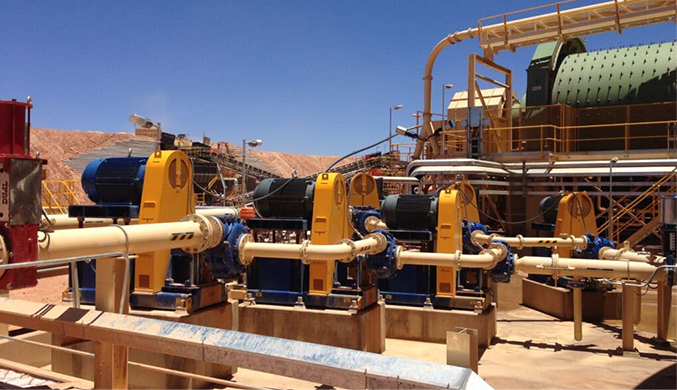Yoruba
- Afrikaans
- Albanian
- Amharic
- Arabic
- Armenian
- Azerbaijani
- Basque
- Belarusian
- Bengali
- Bosnian
- Bulgarian
- Catalan
- Cebuano
- Corsican
- Croatian
- Czech
- Danish
- Dutch
- English
- Esperanto
- Estonian
- Finnish
- French
- Frisian
- Galician
- Georgian
- German
- Greek
- Gujarati
- Haitian Creole
- hausa
- hawaiian
- Hebrew
- Hindi
- Miao
- Hungarian
- Icelandic
- igbo
- Indonesian
- irish
- Italian
- Japanese
- Javanese
- Kannada
- kazakh
- Khmer
- Rwandese
- Korean
- Kurdish
- Kyrgyz
- Lao
- Latin
- Latvian
- Lithuanian
- Luxembourgish
- Macedonian
- Malgashi
- Malay
- Malayalam
- Maltese
- Maori
- Marathi
- Mongolian
- Myanmar
- Nepali
- Norwegian
- Norwegian
- Occitan
- Pashto
- Persian
- Polish
- Portuguese
- Punjabi
- Romanian
- Russian
- Samoan
- Scottish Gaelic
- Serbian
- Sesotho
- Shona
- Sindhi
- Sinhala
- Slovak
- Slovenian
- Somali
- Spanish
- Sundanese
- Swahili
- Swedish
- Tagalog
- Tajik
- Tamil
- Tatar
- Telugu
- Thai
- Turkish
- Turkmen
- Ukrainian
- Urdu
- Uighur
- Uzbek
- Vietnamese
- Welsh
- Bantu
- Yiddish
- Yoruba
- Zulu
Telephone: +86 13120555503
Email: frank@cypump.com
Dec . 22, 2024 01:07 Back to list
water pump for drinking water
The Importance of Water Pumps for Drinking Water Supply
Access to clean drinking water is a fundamental human right, yet millions of people around the world still lack this vital resource. One of the crucial components in ensuring the availability of safe drinking water is the water pump. Water pumps play an essential role in sourcing, transporting, and delivering water to households, communities, and businesses. In this article, we will explore the different types of water pumps, their significance in providing drinking water, and the challenges faced in maintaining these systems.
Types of Water Pumps
Water pumps come in various types, each designed for specific applications and environments. The most common types include
1. Submersible Pumps These pumps are designed to be submerged underwater, often used in wells and boreholes. Their compact design makes them efficient for lifting water from deep underground sources.
2. Centrifugal Pumps These pumps use rotational energy to move water. They are typically used in municipal water systems to transport water from treatment plants to distribution networks.
3. Hand Pumps Often used in rural areas or places where electricity is unavailable, hand pumps require manual operation. They are simple to use and maintain, making them a popular choice in developing regions.
4. Solar-Powered Pumps With the rise of renewable energy, solar-powered water pumps have become increasingly popular. They harness solar energy to pump water, making them sustainable options for remote areas.
Significance of Water Pumps
The role of water pumps in delivering safe drinking water cannot be overstated. They serve several critical functions
1. Accessibility Water pumps make water accessible to communities, particularly in regions where natural sources are far away or contaminated. By bringing clean water closer to households, they reduce the time and effort needed to fetch water.
water pump for drinking water

2. Safety Properly designed and maintained water pump systems help ensure that the water delivered is safe for consumption. They can be equipped with filtration systems to remove contaminants, thereby protecting public health.
3. Irrigation and Food Security In agricultural communities, water pumps are essential for irrigation. By providing a reliable source of water for crops, they contribute to food security and the economic stability of rural areas.
4. Emergency Preparedness During natural disasters, potable water becomes scarce. Water pumps can be crucial in emergency responses, helping to supply drinking water to affected populations.
Challenges in Water Pump Systems
Despite their importance, water pump systems face several challenges that can hinder their effectiveness in providing safe drinking water
1. Maintenance Regular maintenance is critical for water pumps to function efficiently. However, in many parts of the world, particularly in rural communities, there are often insufficient resources or trained personnel to carry out necessary repairs.
2. Resource Limitations Financial constraints can impede the development of robust water pump infrastructures. Governments and NGOs need to invest in affordable technologies and training programs to ensure communities can maintain their water sources.
3. Climate Change Changing weather patterns can impact the availability of groundwater. Droughts and floods may diminish water supplies, making it increasingly difficult to rely solely on traditional water pump sources.
4. Pollution Industrialization and urbanization can lead to contamination of water sources. Developing effective filtration and purification technologies is essential to ensure that water pumped from these sources is safe for drinking.
Conclusion
Water pumps are indispensable in the quest for clean drinking water. They enhance accessibility, ensure safety, and support agriculture, playing a vital role in community health and resilience. Addressing the challenges associated with water pump systems is crucial for creating sustainable water solutions. Investments in technology, maintenance, and training can help ensure that everyone has access to this essential resource, ultimately contributing to better public health and a higher quality of life worldwide. As we strive towards a future where clean and safe drinking water is a reality for all, the importance of reliable water pumps cannot be overlooked.
-
Custom Drilling Mud and Slurry Pump Supplier - High Efficiency, Tailored Solutions
NewsJun.10,2025
-
Supply Vertical Submersible Sewage Pump High-Efficiency WQ/QW Pumps Supplier
NewsJun.10,2025
-
Premium Sewage Ejection System & Pumps Efficient Waste Removal
NewsJun.09,2025
-
Premium Wholesale Slurry Pump Impellers Durable & Efficient Slurry Handling
NewsJun.09,2025
-
Top Sewage Pump Companies Durable Industrial Solutions for Efficiency
NewsJun.09,2025
-
Heavy Duty Slurry Pumps - OEM High Performance & Bulk Wholesale
NewsJun.09,2025










